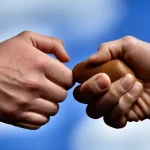The Role of Sports in Shaping Community Identity
The role of sports in shaping community identity cannot be overstated. As a cultural pillar, sports serve as more than just a pastime; they are integral to the very fabric of many communities. In the UK, the impact of sports is particularly profound. Sports act as a binding force, bringing people from diverse backgrounds together, creating a unified sense of belonging. This shared enthusiasm fosters a community identity centred around local pride and collective spirit.
Historically, local teams and events have played a crucial part in fostering pride within communities. Local sports teams often become symbols of communal success and perseverance, representing the community on larger stages. These events and teams provide opportunities for emotional engagement, allowing individuals to identify with a larger group. This connection strengthens social ties, enhancing the sense of community.
This might interest you : Strategies for Training at Home Amid the UK’s Increasing Sports Participation
The relationship between community identity and sports participation is equally significant. When individuals engage in sports, whether as players, fans, or volunteers, they contribute to a shared identity rooted in collective experience. Participation is a testament to the community’s vibrancy and unity, as it actively involves individuals in upholding and promoting their community’s characteristics and values through sports. This dynamic not only energises communities but also ensures that cultural legacies continue to thrive, nurturing a robust community identity enriched by sports.
Social Cohesion Through Sports
Within many communities, sports serve as a powerful tool for fostering social cohesion. They unite diverse groups, breaking down barriers by bringing people together, regardless of age, background, or socioeconomic status. Sporting events provide a common ground where individuals rally behind local teams, fostering both camaraderie and understanding among community members.
This might interest you : What are the strategies for improving accessibility in UK sports?
Several examples illustrate community initiatives centred around sports, facilitating engagement and inclusivity. For instance, local football clubs in the UK often host events open to everyone, encouraging participation and volunteerism that strengthens social ties. These initiatives show how sports acts as a conduit for creating bonds and making lasting connections.
Volunteerism closely linked to sports events has a profound impact. Volunteers contribute significantly to the organization’s success and enjoy immense personal satisfaction in supporting their community. This involvement encourages a collective effort, further solidifying the thread of unity as everyone plays their part in uplifting community spirit.
Emotional Impact of Sports on Communities
The emotional benefits of sports cannot be underestimated, as they play a pivotal role in lifting community morale, especially during challenging times. Sports act as a beacon of hope and unity, offering emotional succour to communities facing adversities. They not only engage emotions but also serve as a therapeutic outlet, enabling individuals to express and share sentiments through supportive environments and collective experiences.
Case studies vividly illustrate how towns are empowered by local sports successes, fostering a strong sense of collective pride. Celebrations of triumphs, no matter how modest, bring joy and motivation, embedding a resilient spirit within the community. For example, when a local underdog team secures a victory, it instills a sense of achievement that reverberates throughout the community, strengthening bonds and reinforcing identity.
Narratives and personal stories provide profound insights into how deeply community members feel connected to local sports. These tales often highlight personal journeys where sports have been a lifeline, transforming lives and nurturing a sense of belonging. Individuals recount how involvement in community sports has offered purpose, inspired friendships, and even supported personal growth. These stories collectively weave an emotional tapestry, capturing the heart of the community and reinforcing its identity.
Cultural Heritage and Local Sports
Local sports are deeply woven into the cultural heritage of communities, acting as a vessel for preserving and promoting longstanding traditions. Sporting events often encapsulate the historical narratives of a community, allowing for the celebration of past triumphs and traditions in a contemporary setting. These events do more than entertain; they continue legacies, ensuring that future generations remain connected to the roots of their community’s unique identity.
Sports narratives contribute significantly to community lore, capturing the essence of shared experiences and collective triumphs. These stories are more than just tales of glory; they reflect the community’s resilience, unity, and spirit. As community members pass down these stories, they reinforce the community’s cultural identity and pride, providing a sense of continuity and belonging.
Historical sports figures hold substantial sway in shaping community identity, embodying values that resonate deeply within the community. Their contributions often transcend the realm of sports, becoming symbols of perseverance and inspiration. These individuals leave lasting impacts, as their stories are woven into the fabric of local culture, influencing the community’s values and aspirations. In this way, historical sports figures not only shape the past but also inspire future generations to uphold and contribute to their community’s rich heritage.
Academic Perspectives on Sports and Community Identity
Understanding the intricate relationship between sports and community identity has been the focus of various academic studies. One key study highlights how sports serve as a microcosm of societal values, reflecting community ethos and priorities. This research unveils the profound impact sports have on fostering a sense of belonging and shared purpose among community members. By participating in sports, individuals engage in a communal experience that mirrors the broader cultural and societal structure.
Sociologists argue that sports function as a vital element within communities by promoting values such as teamwork, perseverance, and unity. These elements are foundational to building a strong community identity. Such insights underscore the importance of sports beyond mere physical activity, positioning them as a critical component in the cultural development of communities.
Experts concur that the long-term benefits of sports extend to enhanced social cohesion. Sports can bridge gaps between diverse social groups, reducing inequalities and fostering inclusive community environments. This is significant for community engagement, as it suggests that sports not only entertain but also cultivate an inclusive space wherein all members feel valued and recognized. By maintaining sports programs and initiatives, communities can continue to reap the benefits of enhanced unity and cultural enrichment.






